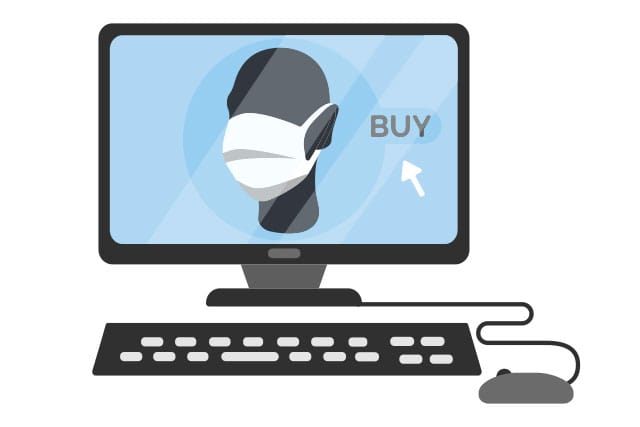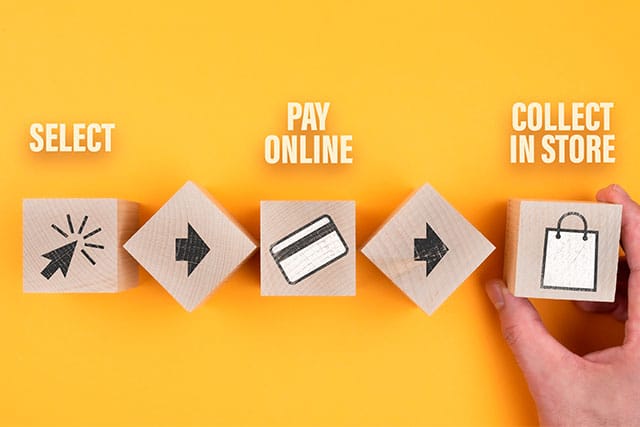
COVID-19: How consumer behaviour will be changed
In mid-March 2020, the trend for marketing emails sent by brands was that they did exactly what you’d expect them to. They carried subject lines and messaging focusing on seasonal offers, with ‘spring,’ ‘sale,’ ‘new,’ ‘now,’ ‘save,’ ‘free,’ and ‘today’ amongst the most prominent words.
By April, the tone had shifted drastically. Some of those words remained, but were joined by ‘Coronavirus,’ ‘Covid,’ ‘update,’ ‘time,’ and ‘test.’ Even ‘love’ made it into the common marketing vernacular – months after Valentine’s. The message was clear: the then-emerging pandemic had thrown into sharp relief a sense of urgency to respond and protect what mattered most.
More than a year on, the shift in consumer behaviour – and the way marketing has adapted to, as well as help shape it – is fascinating to behold. This blog will look at how the pandemic has changed consumer behaviour– and what your marketing team should consider because of it.
How COVID-19 is changing consumer behaviour now and forever
Online shopping has exploded in popularity
How has COVID-19 changed consumer behaviour around you? I’ll start with the obvious answer. The shutting of non-essential shops for months on end across several national lockdowns caused a dramatic shift towards online retail. A survey by eShopWorld showed the UK as the world’s third-largest online shopping market, and another report saw 46% of UK consumers buying products online that they’d previously only bought in a physical store. Everything from groceries to clothing, DIY materials to consumer electronics and more became more popular for purchase through online channels.
Even with the reopening of the high street, there’s every reason to believe these changes will be here to stay. For digital marketers, that creates an exciting opportunity, opening the doors for smart shopping campaigns that let customers shop where they are, plus social media commerce opportunities and more besides.
But so have online returns
In the three years between 2016 and 2019, the rate of returns reported by UK online shoppers went up by 1% – from 46% to 47%. The pandemic saw that number climb to 51%, owing to the closure of physical stores and online retailers offering extended returns windows.
Due to the nature of their products, this proved a particular problem for fashion brands. However, consumer goods of all kinds were affected. In the wake of COVID-19, how consumer behaviour will be changed in this area will depend on how businesses handle the move back to less lenient returns windows. Continuing to offer increased flexibility could impact your bottom line, but might also be a brilliant marketing tool to build trust with an audience who’ve now become accustomed to shopping their way.
Click and collect has become ever more commonplace

Speaking of customers shopping their way – this is another example of that. Click and collect has been around for a long time, but during Covid-19 it became a necessity for sellers to offer the service in order to keep business coming in to physical stores. For those brands willing to invest in the technology to make it viable, same-day click and collect services could be a smart way to leverage the trend towards online retail to direct footfall into physical stores.
New brands have found popularity
As explained by Think With Google, modern mobile-savvy consumers tend to make a decision to purchase in the ‘messy middle’ of their purchase journey. With information at the tip of their fingertips, they’re able to shop around for price and purchase options in seconds. That gives less well-established brands more of an opening if they’re savvy with their SEO, marketing and Google ads spend – something many lesser-known brands did indeed take advantage of during the pandemic.
And omnichannel experiences have risen to prominence
The rise of new brands also gives more well-known names a problem they never used to have. On one hand, increased online competition means a greater need to invest in digital marketing spend. On the other, brands that have physical stores face a greater challenge to make sure those real-life locations don’t become obsolete.
It’s encouraging for those brands, then, that the younger generation, despite being so mobile-savvy, also show a clear preference for an offline-online shopping hybrid. The phrase for this is ‘omnichannel’ – an experience that offers a seamless way for customers to interact with your brand at every touchpoint. Whether it’s seeing an Instagram social ad, speaking to a Facebook chatbot, reading a newsletter, buying from your website or speaking to a member of your staff in-store, investing in omnichannel will future proof your business, and give you the platform to supercharge your digital marketing efforts in the years to come.
Consumers also stayed local
The pandemic has been a strange time when it comes to making connections. On one hand technology has brought people in different locations closer together than ever. On the other hand, most people didn’t leave their home towns and cities for months on end, lending their immediate worlds a smaller and more tribal feeling.
When it comes to how the pandemic has changed consumer behaviour, the upshot is that people started supporting local businesses much more intentionally. Barclays payment data for February 2021 shows people spent a whopping 63.3% more in local specialists like butchers, greengrocers and bakers compared to the previous year, and over 90% of Brits say they intend to keep shopping local in the future.
Google has already leveraged this with its #DearLocal campaign (see the video above), and local businesses jumping on that bandwagon looks a sound strategy. Encouraging user reviews, and incentivising customers to make recommendations on sites other than Google, like Trust Pilot and Checkatrade, will help such companies thrive from positive word of mouth.
And on the whole, also became more mindful
Barclays’ data also indicates people are more mindful of how they spend their money. 50% say they put more thought into gifting behaviour and 83% expect that to continue – indicating that smaller, more focused seasonal promotions could be the way forward for marketers of the future.
Added to that, 46% of consumers in Barclays’ survey say they pay particular attention to sourcing ethical products – with 88% intending to carry on that way. All of which suggests that those more focused promotions might have even more success if they market more sustainable products.
Looking to adapt your marketing post-pandemic?
From this post, it’s clear to see how the pandemic will permanently change consumer behaviour. Businesses should aim to go more digital, more flexible and more omnichannel. Marketers should become more focused, more ethical, and more local.
If you need help doing that, I have the experience to drop in to your business and hit the ground running – particularly in these sectors.
Get in touch to find out more about how I can help.
